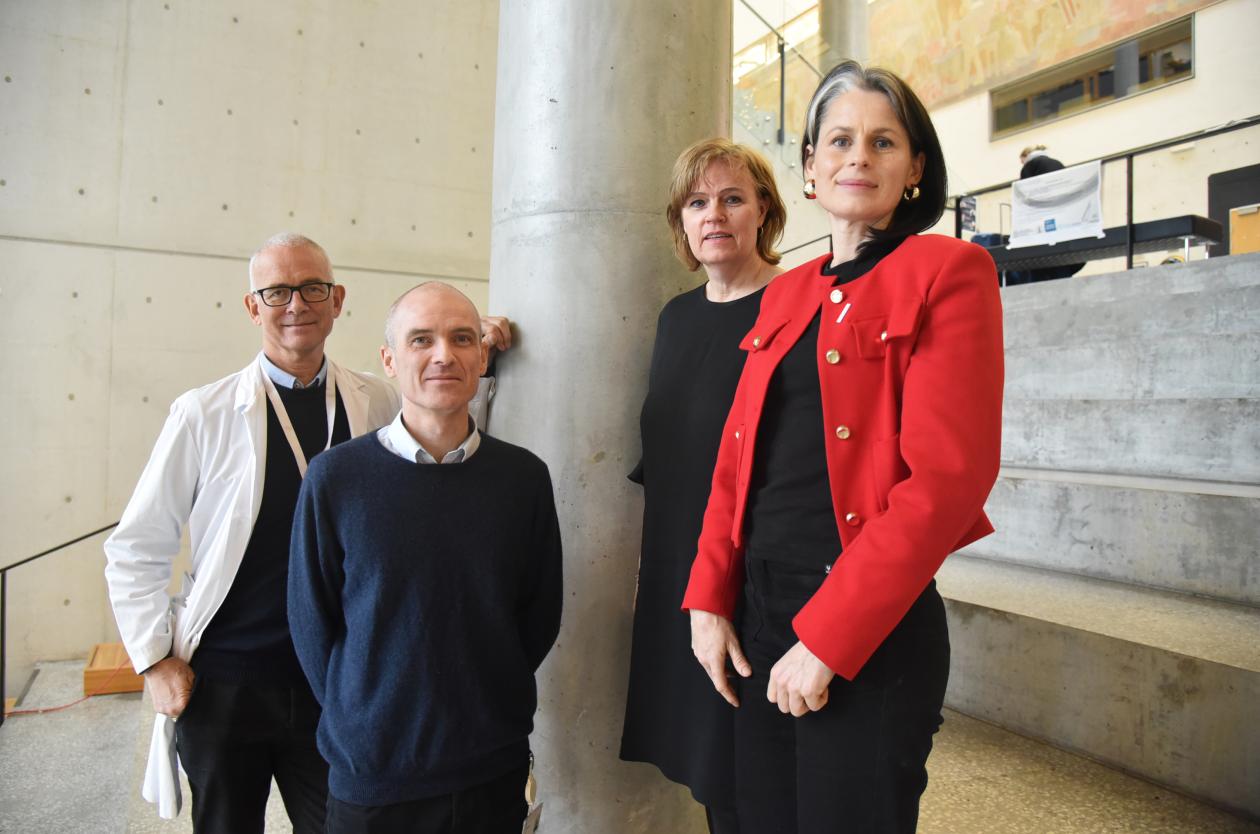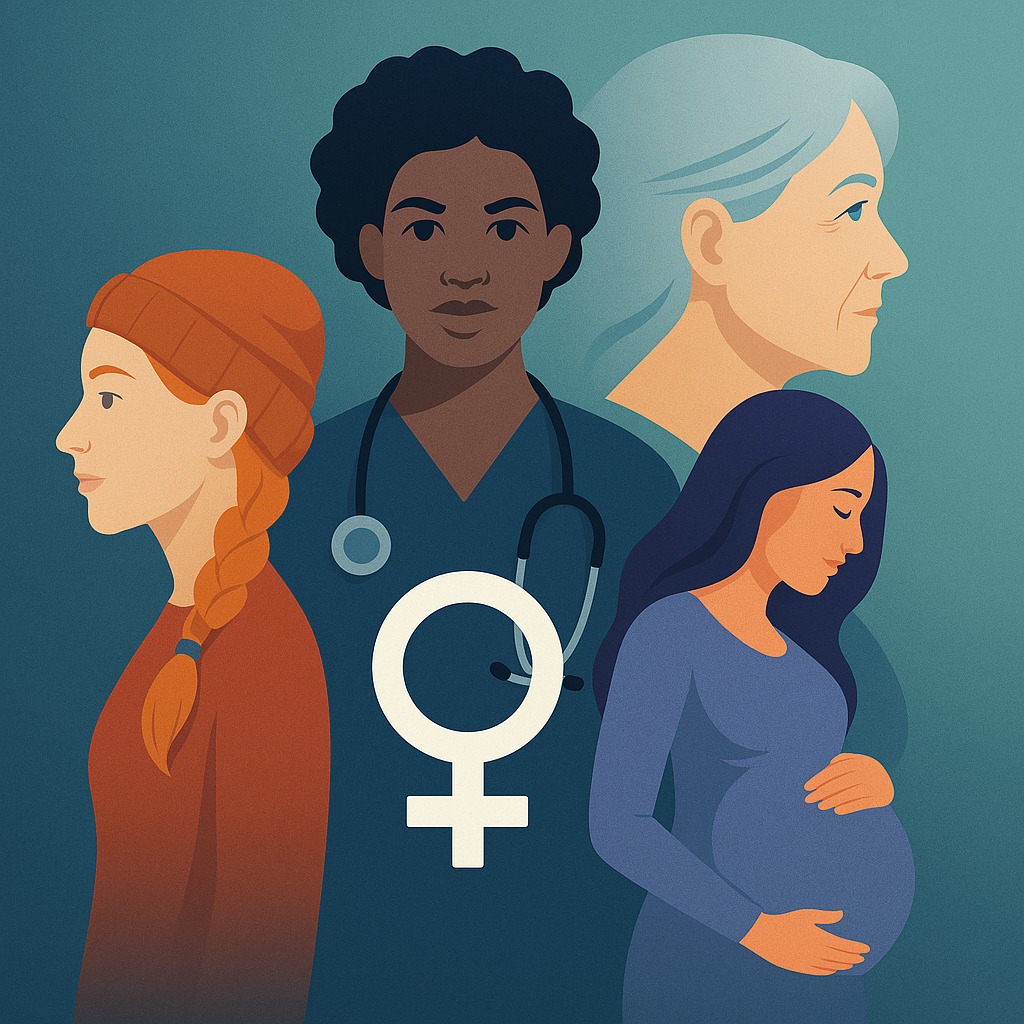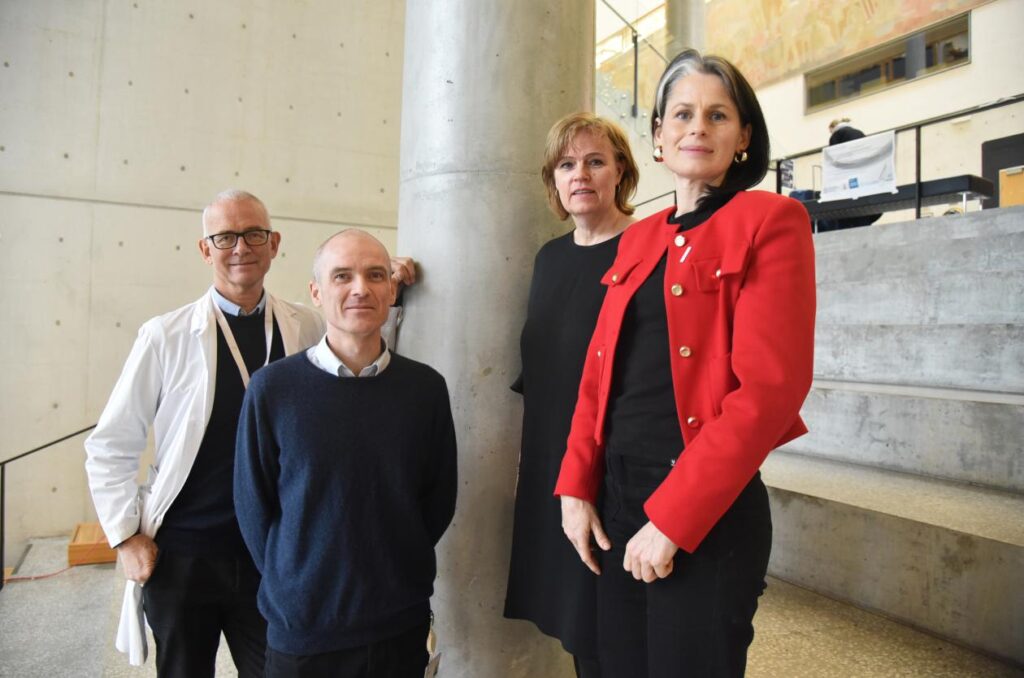Women’s Health
Women and men have different biologies and are affected differently by disease. Several illnesses present with different symptoms in women and men, treatments may have different effects depending on sex, and the risk factors contributing to disease onset vary between women and men.
Although women’s health has received increased attention in recent years, it has for too long held a low status among researchers, educational institutions, and within the healthcare services. This has also been highlighted in the Norwegian Official Report (NOU) 2023:5 and forms the basis for the government’s women’s health strategy.
To address these challenges and promote women’s health, the Trond Mohn Research Foundation, in collaboration with the Faculty of Medicine at the University of Bergen (UiB) and Haukeland University Hospital (Helse Bergen), has invested NOK 50 million in a new research initiative. The Trond Mohn Research Foundation is contributing up to NOK 24 million of this amount.
The initiative consists of four projects, all affiliated with Driv – Centre for Women’s Health Research at the University of Bergen:

Early embryonic epimutations and female cancer
Principal Investigator: Stian Knappskog, Faculty of Medicine, University of Bergen
This project aims to explore how epigenetic changes occurring during fetal development may be a cause of aggressive cancers such as triple-negative breast cancer. A recent breakthrough in the field has shown that 5–10% of healthy women have normal cells with epimutations scattered like a “mosaic” throughout the body. This significantly increases the risk of developing triple-negative breast cancer. The project could open new research areas beyond breast cancer, as the results may also be relevant for other cancer types – and potentially for other women-specific symptoms due to similar epigenetic changes.
Young women with premature menopause – call for action to improve diagnostics and improve fertility
Principal Investigator: Eystein Husebye, Faculty of Medicine, University of Bergen
Premature menopause and hormonal disturbances—referred to in medical terms as POI (Premature Ovarian Insufficiency)—affect 3% of women under the age of 40. In addition to infertility, consequences include increased risk of cardiovascular disease, osteoporosis, dementia, and autoimmune disorders. Hormone therapy can alleviate menopausal symptoms associated with POI, but no treatment currently exists to restore or improve fertility. The cause remains unknown in most women, and the disease mechanisms are under-researched. This project, through interdisciplinary national and international collaboration, aims to gain unique insights into this condition, uncover sex-specific characteristics of the immune system, and develop new diagnostic tools to help preserve fertility.
Safe Treatment for Women needing Antiseizure medications – a multimodal translational and epidemiological approach
Principal Investigator: Marte-Helene Bjørk, Faculty of Medicine, University of Bergen
The aim of this project is to close knowledge gaps and improve safety for fertile women using antiepileptic drugs. These medications are used to treat epilepsy, bipolar disorder, headaches, pain, and other neurological and psychiatric conditions commonly affecting women. However, if taken during pregnancy, these drugs can lead to congenital malformations and neurodevelopmental disorders. The project is divided into three work packages: evaluating the safety of antiepileptic medications, identifying markers of fetal harm, and validating epigenetic markers in a large multinational cohort.
Rethinking Ovarian Cancer: Developing Diagnostic and Functional Tools and Designing Innovative Multimodal Treatment Strategies
Principal Investigator: Line Bjørge, Haukeland University Hospital
Around 500 women in Norway are diagnosed with ovarian cancer annually, but survival rates are low, and most patients experience relapse. To improve immunotherapy treatment, a better understanding of tumor variation and the suppressive tumor microenvironment is essential. This project aims to enhance our knowledge of the immunobiology of ovarian cancer, develop tools for identifying biomarkers and testing immunotherapies, and establish methods for combining surgery with immunotherapy. The project consists of three components: developing personalized immune profiling tools, modeling tumor interactions to test immunotherapies, and developing a local immunotherapy method using CAR-T cells. Results from preclinical tests will form the basis for a clinical program to be launched by the end of the project period.
FACTS
Early embryonic epimutations and female cancer
Principal Investigator: Stian Knappskog, UiB, Faculty of Medicine
Project Period: 2025–2029
Funding from TMF: NOK 6 million
Young women with premature menopause – call for action to improve diagnostics and improve fertility
Principal Investigator: Eystein Husebye, UiB, Faculty of Medicine
Project Period: 2025–2029
Funding from TMF: NOK 6 million
Safe Treatment for Women needing Antiseizure medications – a multimodal translational and epidemiological approach
Principal Investigator: Marte-Helene Bjørk, UiB, Faculty of Medicine
Project Period: 2025–2029
Funding from TMF: NOK 6 million
Rethinking Ovarian Cancer: Developing Diagnostic and Functional Tools and Designing Innovative Multimodal Treatment Strategie
Principal Investigator: Line Bjørge, Haukeland University Hospital
Project Period: 2025–2028
Funding from TMF: NOK 4.5 million
Image below: From left: Eystein Sverre Husebye, Stian Knappskog, Line Bjørge, and Marte Helen Bjørk.
Photo/Illustration: Paul Andre Sommerfeldt, UiB.



